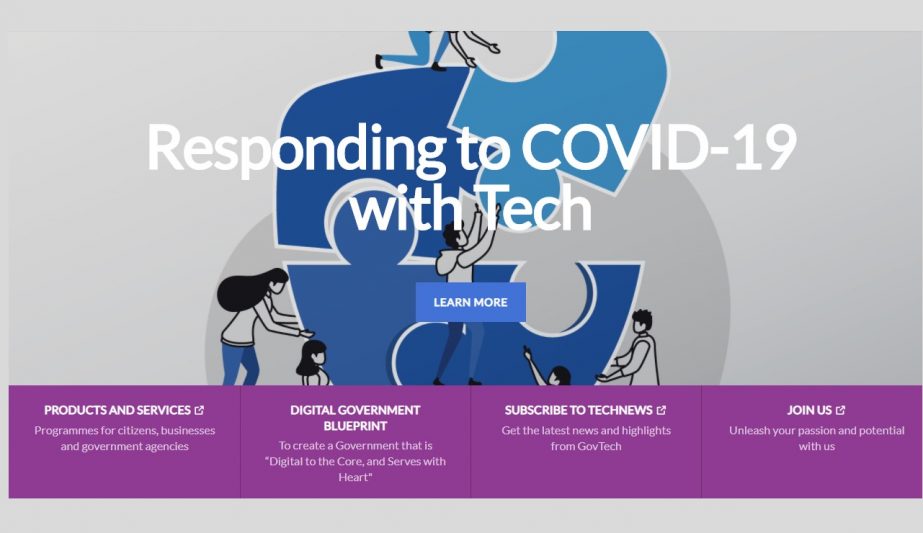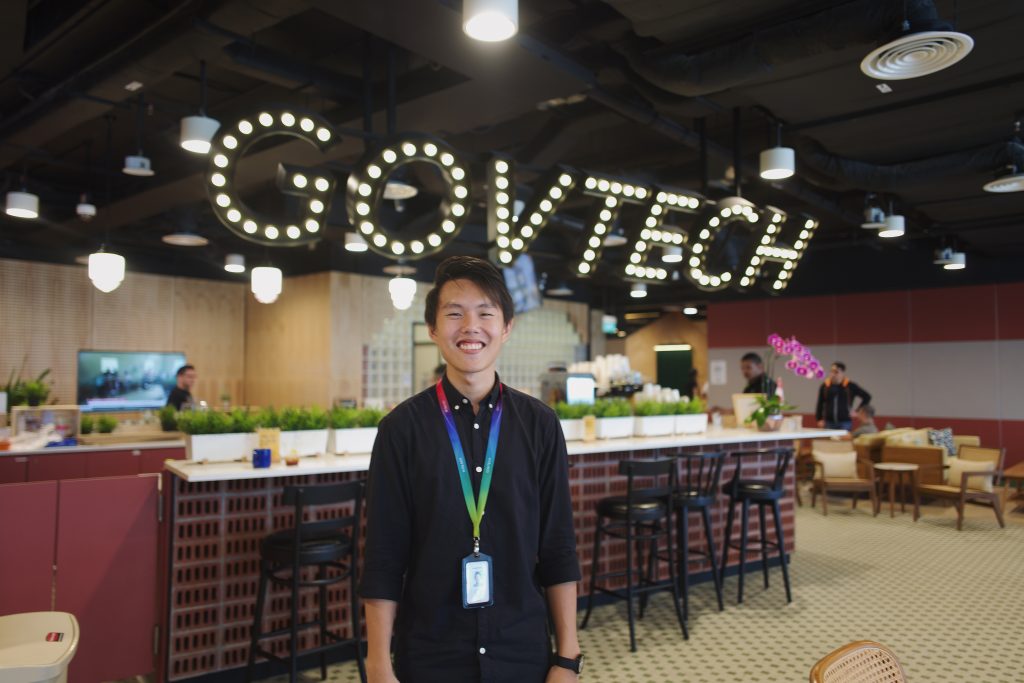

In collaboration with GovTech
These days, people really want to get into the thriving tech sector.
Students are dreaming about being software engineers. Mid-career switchers are attending bootcamps in an attempt to get up to speed. For those of us who don’t have the luxury of time and background in the topic, it can be daunting to get started.
With that in mind, we spoke to two GovTech engineers – new to the workforce, no less – to tell us how one can get started on learning about tech and what it’s like to start a career in tech right now.

Angel Wong. 24. Associate UX Designer. Graduated from Communications and New Media, NUS.
Q: Hey there! As you know, money can be tight for young graduates entering the workforce: What are some places we can learn tech skills for free?
If you’re intending to be an UI/UX designer for a digital product, a basic understanding in HTML/CSS/Javascript will enable you to better understand and communicate your designs with the developers. One of the places I started out learning front-end programming languages was Codeacdemy. It’s a great resource for anyone who wants to start out with front-end development. The site is immensely beneficial for newbies who wish to learn from scratch as it guides you through chapters and progressively builds on what you have learnt as compared to passively reading about it.
That really helps, considering programming is an applied skill!
If you are interested in UX, check out Coursera for many free course materials on UX and more. It will be a great stepping stone into the theoretical aspects of UX
When the foundations are laid, don’t forget to put what you have learnt into practice! As an aspiring UX designer, it would really help to build up your own portfolio of side projects. You can find something that you’re passionate to create or design. If you don’t have that, find something about a current app, product or service that frustrates you and challenge yourself to apply what you’ve learnt to make the existing UX better.
Q: What other skills are important for anybody who wants to be a UX designer?
To be a good UX designer, having strong interpersonal and communication skills are extremely important, since it’s about understanding people and being understood without always having something tangible. You will need these skills to help put across your ideas and to persuade others why your suggested ideas should be adopted.

Tan Kee Hock. 27. Associate Cybersecurity Specialist. Graduated from Information Systems, SMU
Q: Many employers are looking and hiring programmers these days. Why do you think so?
The world is entering a new era of digital age. Everything you see and do involves software in some way or the other. Some examples: When you turn on your tap, a software down the water supply system pipeline is ensuring there is enough clean water distributed to every household. Traffic light systems? They’re built upon complex algorithms to ensure efficient distribution of traffic.
If you can program things, the power is in your hands – and as seen from the examples above, the impact of your work is no longer restricted to the digital realm. I think it holds the key to solve some of the greatest challenges in global society today.
Q: A lot of people think programming has a lot to do with code and sitting infront of a computer. Is that the full picture?
It’s not entirely true! Learning to program also helps to develop your frame of thought! A term that is usually associated with the way programmers think and tackle problems methodologically is called “computational thinking”. Developing “computational thinking” habits helps you deal with real world problems in general, not just being good with computers!
Through “computational thinking”, you learn to break down huge complex problems into smaller and more manageable parts. You will recognise patterns and develop step-by-step solutions (algorithms). This is very useful skill to have! Thus, a programmer is often associated with traits like “analytical”, “logical” and “problem solver”!
Q: You do cybersecurity, which is not a very common field. Make a career pitch for it:
Our digital footprints that we leave behind in cyberspace, are the new “gold” of the 21st century.
These digital footprints can be pieced together to perform malicious acts against individuals or organisations by cyber criminals. They make use of the information we leave behind, to further their malicious intent. For example, they can use publicly available information that is personal to us to craft a believable pretext for phishing emails.
Given the dynamics of the cyber landscape, attacks are becoming increasingly sophisticated and prevalent. The industries are beginning to see the need for increased but sustainable cybersecurity investments, and this led to the demand for skilled cybersecurity professionals.
Learning cybersecurity is not just about safeguarding the organisation but also people we hold dear. It’s a career that is both future proof and meaningful. What’s there not to like?
Q: What are some free learning resources you’ll recommend?
For programming related resources, try EDX and for cybersecurity, check out try hack me.
Career Opportunities for Students: If you are interested to start a career with GovTech, check out our Campus Recruitment Programmes.
















